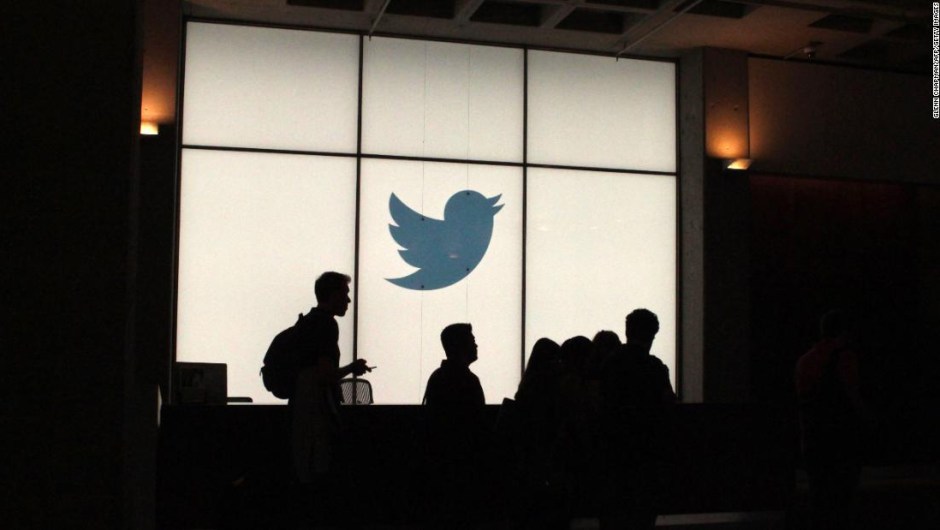Editor's Note: Kara Alaimo, Associate Professor of Public Relations at Hofstra University, is the author of "Pitch, Tweet, or Engage on the Street: How to Practice Global Public Relations and Strategic Communication." She was a spokesman for international affairs in the US Treasury Department during the Obama administration. Follow her on Twitter at: @karaalaimo. The opinions expressed belong to the author. See more articles like this at cnne.com/opinion.
(CNN) - A cyber attack on several prominent Twitter accounts last week exposed an alarming reality less than four months before the US presidential election. Digital companies, the government and Americans are not prepared for a series of unexpected events like this, which could lead to elections turning into chaos. On Wednesday, some 130 public Twitter accounts, including Joe Biden, Barack Obama, Bill Gates and Elon Musk, were hacked. Hackers tweeted from compromised accounts asking their followers for bitcoin payments. While fixing the issue, the platform temporarily suspended all verified accounts involved.
The incident revealed that four years after Americans learned how easily an election can be manipulated through social media, the country is still not close to safeguarding this year's election. A big part of the problem is that, as Nassim Nicholas Taleb wrote in his book "The Black Swan: The Impact of the Highly Improbable", when trying to predict future events, people tend to think only of the things that have happened in the past, ignoring phenomena that we had never seen and that could happen later. Taleb defines these events as "black swans".
But Taleb's black swans tend to be very unpredictable, like the rise of the internet or new art schools. This cyber attack should not have taken Twitter or anyone else by surprise, given the number of such episodes that have been identified before. For example, last year, Twitter CEO Jack Dorsey's account was breached, and two company employees were accused of helping Saudi Arabia spy on critical voices. Since hackers have penetrated countless companies and even the CIA in the past, Twitter should have been aware that there was a possibility of being the target of an attack again and should have prepared for every contingency.
But, clearly, it was not. People who followed the instructions in the fake tweets and started 518 bitcoin transactions probably also didn't realize that the messages were part of a hoax. And law enforcement officials were unable to thwart the attack and have yet to identify potential suspects.
That's a major problem, because another trick like this during or near Election Day could tip the election in favor of a particular candidate. It is not difficult to imagine how possible false tweets by Biden or President Donald Trump, in which unfortunate opinions or inaccurate information about the vote were shared, could influence the decision of many citizens about whether or not to go to the elections and about who to choose or discard.
So what do we do now?
First, social media needs to be smarter at preventing potential cyber attacks, and they need to deal with it quickly. While the investigation into how hackers accessed accounts last week continues, it is reported that one possibility being explored is that an employee has sold their password. A 2016 study found that 27% of Americans who work in offices say they would sell their passwords to a third party, most for less than $ 1,000. The quote is higher for a Twitter employee. The government also needs real plans to predict and disrupt the movements of hackers. Currently, government officials and analysts responsible for preventing electoral threats are focused on protecting voting systems, rather than addressing threats from social networks like this, according to the New York Times.
Second, we should all be skeptical about the information we consume. In the past four years, Americans have heard many warnings that we need to check the reliability of our sources to ensure that we are not receiving false news. But now, we must also be careful about information that comes from trusted sources, such as verified Twitter accounts, that may have been hacked. The best way to do this is to consult multiple sources of information.
Before acting on the information we see on social media, for example, we should confirm it with the mainstream media, that is, news organizations that conform to standard journalistic practices of data verification and proper balance, and then take the time to cross reference with other conventional means.
This is because news organizations could also be victims of such attacks. For example, in 2011, hackers posted a bogus story on the PBS website claiming that the late rapper Tupac Shakur was alive in New Zealand. So if an online story seems suspicious, it is recommended that before airing it, we check other credible news sites for contrast.
Finally, all organizations, including the government, politicians, and businesses, need to find multiple ways to reach their audiences and not assume that social media will work even at critical moments. To mention one case, on Wednesday, the US National Weather Service was unable to issue a tornado warning for Illinois, because Twitter had blocked its verified account along with those of the rest. This means that, especially in the days leading up to and on Election Day, Joe Biden, President Trump, government officials and others who share voting information need backup plans to ensure arrival in their constituencies, through from text messages, emails, community officials and organizations, and a variety of media outlets to immediately warn of possible false information that may be gaining ground through news reports with untrue, inaccurate data or action hackers.
Wednesday's "black swan" caught many unaware, although the threat was far from implausible or difficult to predict. But it is not too late for all of us to act in time to prevent a similar attack from clouding the November elections.
Hacking Twitter

